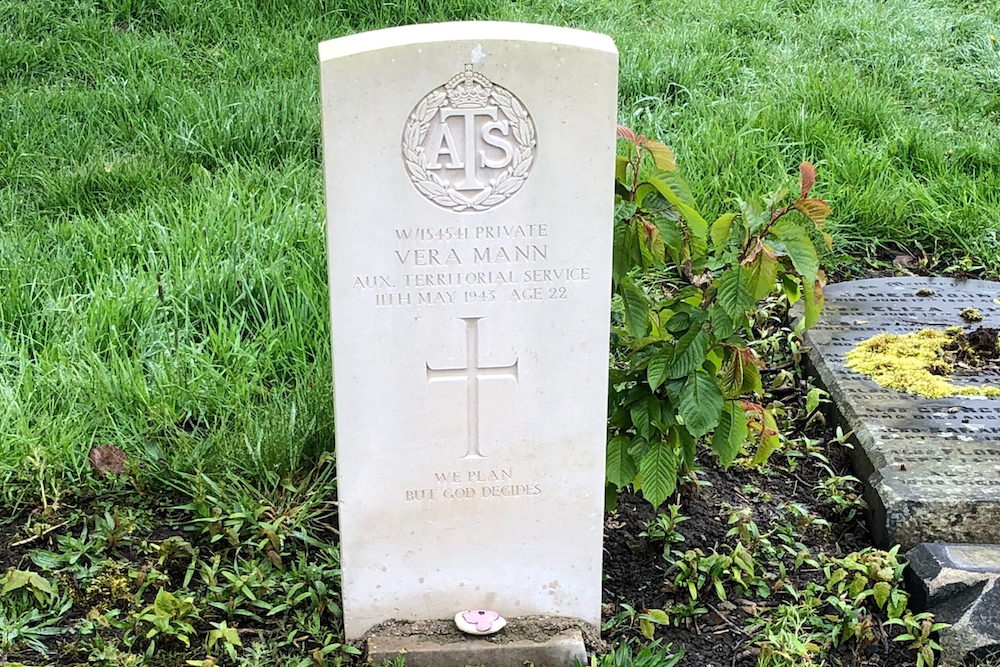
The Women’s Royal Army Corps Association (WRAC Association) is campaigning for proper recognition of role women in the armed services played during the Second World War with commemoration events including one at Holbeck Cemetery on Sunday (14 May 2023) at 2pm.
On the morning of 11 May 1943, the biggest loss of female army life in British history took place, when twenty-six servicewomen were killed by bombs dropped by enemy Focke-Wulf fighter planes on their quarters in Great Yarmouth. Only one woman survived, and the youngest killed, Private Lilian Grimmer, was just 18 years old.
80 years later, the WRAC Association has organised the first coordinated event to remember and honour the twenty-six women who died whilst serving in the ATS. (The Auxiliary Territorial Service became the WRAC in 1949.) The women who’d joined the Army came from various locations across England and Scotland, and were serving at their quarters in Great Yarmouth, Norfolk. The 25 commemoration events will be held in the hometown of each servicewoman, from Stornoway in the north to Bournemouth in the south, at 2pm Sunday 14 May.
One of those events will take place to remember Private Vera Mann from Beeston Hill, who was 22 years old and is buried in Holbeck Cemetery.
Representatives and members from the WRAC Association will be in attendance at individual events across the country, with the main Act of Commemoration taking place in Great Yarmouth at the site of the original ATS accommodation in which the women were killed.
87-year-old Eric Beckett witnessed the Great Yarmouth bombing aged 8 years old:
“Coming towards us was what looked like a torpedo, it was almost touching the sea. At that moment, we heard explosions further south … I peered over to see a building collapsing across the North Drive with lots of dust coming from it. Then all went quiet, except for explosions around the town. Outside was a lady covered from head to toe in soot – it was our mother looking for us. It wasn’t until a day or so later that we realised that the house we saw collapsing across the North Drive was the same house where we had played games with the ATS girls. That so many had died shocked us – those ATS girls, who gave us so much joy, have always had a special place in my heart.”
Retired Brigadier Fiona Gardner, Vice President of the WRAC Association, explains,
“Many servicewomen from the World Wars may have a CWGC (Commonwealth War Graves Commission) grave, but no mention on their local community War Memorial. This needs to change: we want people to check their local war memorials to see if ladies from the area are mentioned, because they deserve to be honoured just as their male counterparts.”
Paula Rogers, CEO of the charity, adds,
“So many of our servicewomen don’t see themselves as veterans – despite the fact that they were instrumental in serving their country. We hope to get them the recognition they so deserve through this campaign, and our wider work at the Association.”
You can find out more about the We Will Remember Her campaign at: wraca.org.uk/rememberher
This post is based on a press release issued by the WRAC Association
Whilst you’re here, can we ask a favour?
South Leeds Life is published by a not-for-profit social enterprise. We keep our costs as low as possible but we’ve been hit by increases in the print costs for our monthly newspaper – up 83% this year.
Could you help support local community news by making a one off donation, or even better taking out a supporters subscription?
Donate here, or sign up for a subscription at bit.ly/SLLsubscribe


